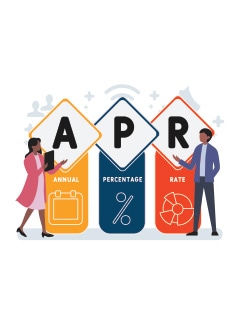CKYC Registry
-
Customer Service Contact us Service request Locate a branch
Find all the help you need
Scan the QR, get our app, and find help on your fingertips

Help CenterSupport topics, Contact us, FAQs and more
-
Login
Are you ready for an upgrade?
Login to the new experience with best features and services
-
Login
Are you ready for an upgrade?
Login to the new experience with best features and services
- Accounts
-
Deposits
IDFC FIRST Bank Deposits
View all Deposits -
Loans
IDFC FIRST Bank Loans
View all Loans - Wealth & Insure
-
Payments
IDFC FIRST Bank Payments
View all Payments -
Cards
IDFC FIRST Bank Cards
View all Cards - Blogs
- Corporate Account
-
Cash Management Services
IDFC FIRST Bank Cash Management Services
View all Cash Management Services - Supply Chain Finance
-
Corporate Lending
IDFC FIRST Bank Lending
View all -
Treasury
IDFC FIRST Bank Treasury
See more details - NBFC Financing
Support topics, Contact us, FAQs and more
- IDFC FIRST Bank Accounts
-
Savings Account
-
Corporate Salary
Account -
Senior Citizens
Savings Account -
First Power
Account -
Current Account
-
NRI Savings
Account -
TASC Institutional
Account -
Savings Account
Interest Calculator
- IDFC FIRST Bank Deposits
-
Fixed Deposit
-
Recurring Deposit
-
NRI Fixed Deposit
-
Safe Deposit Locker
-
FD Calculator
-
RD Calculator
- IDFC FIRST Bank Loans
-
Personal Loan
-
Consumer Durable
Loan -
Home Loan
-
Business Loan
-
Professional Loan
-
Education Loan
-
New Car Loan
-
Pre-owned Car Loan
-
Two Wheeler Loan
-
Pre-owned Two
Wheeler Loan -
Commercial Vehicle
Loan -
Gold Loan
-
Loan Against Property
-
Loan Against Securities
-
Easy Buy EMI card
-
Personal Loan
EMI Calculator -
Education Loan
EMI Calculator -
Home Loan
EMI Calculator
- IDFC FIRST Bank Wealth & Insure
-
FIRST Select
-
FIRST Wealth
-
FIRST Private
-
Mutual Funds
-
Sovereign Gold Bond
-
Demat Account
-
Term Insurance
-
Life Insurance
-
Health Insurance
-
General Insurance
-
Bonds
-
Loan Against
Securities -
Portfolio Management
Service
- IDFC FIRST Bank Payments
-
FASTag
-
Credit Card
Bill Payments -
UPI
-
Funds Transfer
-
Forex Services
-
Pay Loan EMI
- IDFC FIRST Bank Cards
-
Ashva :
Metal Credit Card -
Mayura :
Metal Credit Card -
FIRST Millennia
Credit Card -
FIRST Classic
Credit Card -
FIRST Select
Credit Card -
FIRST Wealth
Credit Card -
FIRST WOW!
Credit Card -
Deals
-
Debit Cards
-
Co-branded Cards
-
Credit Card
EMI Calculator -
FIRST Corporate
Credit Card -
FIRST Purchase
Credit Card -
FIRST Business
Credit Card
- Premium Metal Credit Cards
-
AshvaLifestyle1% Forex₹2,999
-
MayuraLifestyleZero Forex₹5,999
-
FIRST PrivateInvite Only
- Best for travellers
-
MayuraZero ForexMetal₹5,999
-
Ashva1% ForexMetal₹2,999
-
FIRST WOW!Zero ForexTravelLifetime Free
-
FIRST SWYPTravel OffersEMI₹499
-
FIRST Select1.99% ForexLifestyleLifetime Free
-
FIRST Wealth1.5% ForexLifestyleLifetime Free
-
Club VistaraTravelLifestyle₹4,999
-
IndiGo IDFC FIRST Dual Credit CardTravelLifestyle₹4,999
- Max benefits, Free for life
-
FIRST Classic10X RewardsShoppingNever Expiring Rewards
-
FIRST Millennia10X RewardsShoppingNever Expiring Rewards
-
FIRST Select10X RewardsLifestyle1.99% Forex
-
FIRST Wealth10X RewardsLifestyle1.5% Forex
-
FIRST WOW!RewardsTravelZero Forex
-
LIC ClassicRewardsInsuranceShopping
-
LIC SelectRewardsInsuranceShopping
- Reward Multipliers
-
AshvaLifestyleMetal₹2,999
-
MayuraLifestyleZero Forex₹5,999
-
FIRST ClassicNever Expiring RewardsShoppingLifetime Free
-
FIRST MillenniaNever Expiring RewardsShoppingLifetime Free
-
FIRST SelectNever Expiring RewardsLifestyleLifetime Free
-
FIRST WealthNever Expiring RewardsLifestyleLifetime Free
- Rewards & Credit on UPI
-
FIRST Power+FuelUPI₹499
-
FIRST PowerFuelUPI₹199
-
FIRST EA₹NVirtual1% Cashback₹499
-
FIRST DigitalVirtualUPI₹199
-
IndiGo IDFC FIRST Dual Credit CardUPITravelDual cards
- Fuel and Savings
-
FIRST PowerRewardsUPI₹199
-
FIRST Power+RewardsUPI₹499
-
LIC ClassicRewardsInsuranceShopping
-
LIC SelectRewardsInsuranceShopping
- Express and Flaunt
-
AshvaMetal1% Forex₹2,999
-
MayuraMetalZero Forex₹5,999
-
FIRST SWYPEMIOfferMAX₹499
-
FIRST MillenniaRewardsShoppingLifetime Free
- FD Backed rewarding Credit Cards for all
-
FIRST EA₹NVirtualCashback₹499
-
FIRST WOW!Zero ForexTravelLifetime Free
-
CreditPro Balance TransferTransfer & SaveReduce InterestPay Smartly
- IDFC FIRST Bank NRI Forex Solutions
-
Send money to India-Wire transfer
-
Send money to India-Digitally
-
Send money abroad
-
Max Returns FD (INR)
- IDFC FIRST Bank MSME Accounts
-
Platinum Current
Account -
Gold
Current Account -
Silver Plus
Current Account -
Merchant Multiplier
Account -
Agri Multiplier
Account -
TASC Institutional
Account -
Dynamic Current
Account -
World business
Account -
First Startup
Current Account
- IDFC FIRST Bank Business Loans
-
Business Loan
-
Professional Loan
-
Loan Against Property
-
Business Loan for Women
-
Working Capital Loan
-
Construction Equipment Loan
-
Machinery Loan
-
Healthcare Equipment Loan
- IDFC FIRST Bank Business Solutions
-
Payment Solutions
-
Tax Payments
-
Doorstep Banking
-
Point of Sale (POS)
-
Escrow Accounts
-
NACH
-
Payment Gateway
-
UPI
-
Virtual Accounts
-
As per amendment in the Income Tax Rules, PAN or Aadhaar are to be mandatorily quoted for cash deposit or withdrawal aggregating to Rupees twenty lakhs or more in a FY. Please update your PAN or Aadhaar. Kindly reach out to the Bank’s contact center on 1800 10 888 or visit the nearest IDFC FIRST Bank branch for further queries.
-
-
Most Searched
Sorry!
We couldn’t find ‘’ in our website
Here is what you can do :
- Try checking the spelling and search
- Search from below suggestions instead
- Widen your search & try a more generic keyword
Suggested
Get a Credit Card
Enjoy Zero Charges on All Commonly Used Savings Account Services
Open Account Now
Personal Loan
Missed an EMI Payment? Here’s What You Need to Know
Key Takeaways
If you’ve missed an EMI date, clear the payment and inform your lender immediately to avoid any penalties.
An extended duration of non-payment (90 days+) can lead to your loan being classified as an NPA (Non-Performing Asset).
It is ideal to use the auto-debit option to avoid missing any EMI payments.
Life isn’t always predictable – a lot of things don’t always go as planned. Missing a personal loan EMI can be one of the things that crop up unexpectedly – and it can happen to anyone. Whether it is due to lack of funds, a missed reminder, or other events that warranted your complete attention, what matters is how soon you act and what you do next after defaulting on your personal loan. This guide delves into what happens when you miss an EMI and the options you have at your disposal to manage the impact.
READ MORE
What should I do if I missed my EMI payment by one day?
If you’ve missed your EMI payment by just one day, don’t panic but act quickly. The first step is to make the overdue payment immediately through your bank’s net banking portal, mobile app, or payment link shared by the lender. This ensures the delay does not extend further and cause additional interest charges.
Next, check if any late payment fee or penalty has been applied. You can find this information in your loan agreement or by logging into your loan account on the lender’s website/app. You may also receive SMS or email alerts specifying the overdue amount and applicable charges.
It’s equally important to inform your lender promptly. Contact their customer care team or raise a service request through the app or website explaining the delay, especially if it was due to a technical or banking issue. This proactive communication can sometimes help waive off minor penalties and prevent a negative impact on your credit score.
To avoid the hassle of missed EMIs, consider setting up auto-debit instructions or payment reminders to always be up to date with your financial obligations.
Many banks, including IDFC FIRST Bank, now offer real-time payment alerts, reminders via app or sms, and auto-debit options. Using these features can drastically reduce the chance of missing your EMI due date.
What happens if EMI is not paid on time?
Missing an EMI payment can have different consequences depending on how long the delay lasts. A minor delay, such as missing the due date by a few days, is often manageable. In such cases, the EMI bounce may trigger a late payment fee and penal interest, and you’ll likely receive reminders via SMS, email, or a call from the lender. Most lenders offer a short grace period, usually from 3 to 5 days, during which you can make the payment without severe repercussions.
However, if the delay turns into a prolonged default, such as missing EMIs for 90 days or more, the impact is much more serious. After this period, the loan is usually classified as a Non-Performing Asset (NPA), and you may be marked as a loan defaulter. This significantly affects your credit score, limits your future loan eligibility, and may even invite legal recovery action from the lender.
To avoid these outcomes, it’s wise to calculate your EMI in advance using a personal loan EMI calculator, ensure sufficient balance on due dates, and maintain clear communication with your bank in case of any financial difficulty.
What is the impact of a personal loan EMI default?
Defaulting on your personal loan EMI can trigger a series of financial setbacks, both immediate and long term. Here’s how it can impact your financial profile:
Immediate consequences
- Late payment charges: If the payment fails because you had insufficient funds in your bank account, you will incur a penalty from both the lender and your bank. Lenders may charge a late fee of 1% to 2% of the overdue EMI amount.
- Credit score damage: Missing an EMI reflects poorly on your credit behaviour. Banks report such defaults to credit bureaus like TransUnion(CIBIL), which can lead to a significant drop in your credit score. A lower score can restrict your access to future credit cards, home loans, or any form of unsecured lending.
- Interest costs: You will continue to accrue interest on your outstanding loan amount, resulting in higher interest outflow.
- Collection calls and legal action: Prolonged defaults may trigger frequent collection calls, visits, or even legal action. Recovery proceedings can cause significant stress and financial strain.
Impact of extended delay (90 days or more)
- Higher interest rates in future: Once you’re marked as a defaulter, lenders view you as a high-risk borrower. This means you may only qualify for loans at a higher personal loan interest rate or less favourable terms in the future, even if your financial situation improves.
- Loan restructuring or settlement: If you're consistently unable to repay, the bank might offer a loan restructuring plan. This could include extending the loan tenure or reducing the EMI temporarily. Alternatively, a loan settlement might be offered, where you repay a portion of the outstanding dues. However, settlements are reported to credit bureaus and can hurt your creditworthiness.
- Difficulty in getting new loans: Most importantly, once you've defaulted, securing new credit becomes difficult. Even if approved, you may face strict scrutiny and conditions, such as the need for guarantors or collateral.
- Legal action: The lender may also initiate legal action on you to recover their outstanding dues. This can be a stressful, costly, and time-consuming process.
What do to if you cannot manage your loan payment?
If you ever find yourself in a tight spot due to missed payments, here are a few things you must do:
- It’s never too late to ask for help: If you have not paid your EMI, get in touch with your bank and speak to your personal loan officer. Explain your situation. If it’s a genuine issue, such as a medical emergency in your family, your bank may offer to defer you payment and allow you to pay your due in the following month. However, you must assure to pay both the months’ EMI on time. The bank may charge a small late payment fee.
- Request for an extension: If you don’t think you can pay your EMI in the coming few months due to a long-term issue, such as if you’ve had a pay-cut or if you have lost a job, it is still advisable to connect with the executives at the bank and find out a permanent solution for this. You may request to restructure your plan.
- Check for a loan against investment/insurance: The next best thing to do is to take a loan against your personal assets, such as gold, fixed deposit or personal insurance. A secured loan borrowed against collateral has a lower rate of interest, so you can pay that later. The money you receive now can help you clear your EMI for more expensive loans.
- Ask for settlement: If none of the above-mentioned options work, talk to your bank about settling the loan. This will mean that you will agree to repay a part of the loan and the bank considers it as a settled loan. While the rest of the options do not hinder your credit score, this one does. A loan that is ‘settled’ reflects negatively on your credit history than a loan that is fully repaid.
- Consider a balance transfer: If your EMI burden feels heavy, you may transfer your personal loan to another bank offering a lower interest rate. This reduces your monthly outgo and helps you stay on track.
Need help with your EMI? Contact IDFC FIRST Bank today
Defaulting on EMIs can result in unpleasant consequences. With FIRSTmoney, IDFC FIRST Bank’s smart instant loan, you get the benefit of a customised, flexible repayment plan ranging from 9 to 60 months that is aligned with your financial situation. Plus, you won’t have to pay any foreclosure charges if you pay your loan early. Take control of your finances and experience borrowing that is tailored to your needs. Get in touch with a bank representative today.
Frequently Asked Questions
What happens if I miss my EMI payment for a personal loan?
If you miss an EMI, your account starts showing overdue days until the shortfall is cleared. During this period, late payment charges, penal interest on the overdue portion, and bounce fees may apply. The account remains marked as overdue until dues are settled. Keeping proof of repayment is useful for records. Regularising the account quickly helps reduce extra charges and avoids further escalation by the collections team.
Will missing one EMI hurt my CIBIL score?
Missing even a single EMI can be reported to the credit bureau as a delay, which might reduce your CIBIL score. The impact often depends on the duration of delay and your broader repayment history. Clearing the overdue quickly and ensuring future EMIs are paid on time can help stabilise your profile. Monitor your credit report after repayment to confirm that the status is updated correctly and reflects timely closure.
How can I avoid late payment penalties?
To avoid late payment penalties, ensure that sufficient funds are available in your account at least a day before the debit date. Set up automatic payments and enable alerts for low balances. Calendar reminders or SMS alerts also help. If your salary and EMI dates clash, ask about changing the repayment date. When switching bank accounts, update the e mandate promptly. Maintaining a small buffer in your account can prevent missed debits.
Can I change my personal loan EMI date after missing a payment?
After missing a payment, you can usually request an EMI date change, though this is subject to lender policy and only after clearing pending dues. Fees or mandate re registration costs may apply. Shifting the due date closer to your salary credit can reduce chances of future delays. Make the request formally through the app, helpline, or branch, and obtain confirmation of the revised schedule for your records to avoid confusion later.
Is there a way to reschedule my personal loan EMIs with IDFC FIRST Bank?
If you face repeated payment difficulties, you can get in touch with the Bank. Each request is reviewed individually based on policy, profile, and repayment track. Formal restructuring can affect how the account is reported. Before proceeding, check the total interest impact, charges, and conditions. Always ask for written documents showing revised terms before agreeing to any change.
What are the charges if my personal loan EMI bounces?
When an EMI bounces, fees are charged as per your sanction letter and MITC. These often include bounce charges, penal interest on the overdue portion, and applicable GST. If repayment is delayed further, late fees may also apply. The amounts and slabs differ by product and lender policy. To know the exact figure, review your welcome kit or app schedule of charges. Always clear dues promptly to reduce compounding of penalties. For IDFC FIRST Bank personal loan you can view the full list of fees and charges here.
Does 1-day late payment affect CIBIL score?
A single day’s delay in EMI payment does not usually impact your CIBIL score, provided the payment is made within the lender’s grace period. Most banks and NBFCs do not report minor delays to credit bureaus unless the payment is significantly overdue. However, if the delay extends beyond the grace period, it could be flagged as a missed payment, affecting your credit score. Additionally, late fees or penal interest may still apply even if your CIBIL score remains unaffected.
What happens if one EMI bounces?
When an EMI bounces due to insufficient funds or technical issues, the lender usually informs you via SMS, email, or call. You may be given a chance to repay immediately or within a short time frame. Bounce charges and penal interest will likely be added to your outstanding dues. While a single bounce may not immediately damage your CIBIL score, repeated instances could be reported to credit bureaus and lower your creditworthiness. If unresolved for a prolonged period, this could eventually lead to default classification.
How many missed payments before legal action?
Generally, if a borrower misses 3 consecutive EMIs or defaults for more than 90 days, the loan account is classified as a Non-Performing Asset (NPA). At this point, the lender may initiate legal proceedings, particularly if the loan is substantial or unsecured. Before taking legal action, most lenders issue multiple reminders and provide options such as restructuring or settlement.
What is the grace period in a loan?
A grace period is a short time window, typically 3 to 5 days after the EMI due date, during which you can pay the EMI without it being marked as a default. While interest may still accrue, lenders usually do not report the delay to credit bureaus during this period. However, penal charges or late fees may still apply. Grace periods vary by lender and loan agreement, so it’s essential to review your loan terms carefully.
Can I postpone my EMI date?
Yes, many lenders allow you to reschedule or postpone your EMI date, especially if your salary credit date or cash flow situation has changed. This is typically allowed once or twice during the loan tenure and may involve a formal request or a minor processing fee. Approval is at the lender’s discretion and may depend on your repayment history and loan type. Contact your lender’s customer care or visit the branch to check if you are eligible for a change in EMI date.
Disclaimer
The contents of this article/infographic/picture/video are meant solely for information purposes. The contents are generic in nature and for informational purposes only. It is not a substitute for specific advice in your own circumstances. The information is subject to updation, completion, revision, verification and amendment and the same may change materially. The information is not intended for distribution or use by any person in any jurisdiction where such distribution or use would be contrary to law or regulation or would subject IDFC FIRST Bank or its affiliates to any licensing or registration requirements. IDFC FIRST Bank shall not be responsible for any direct/indirect loss or liability incurred by the reader for taking any financial decisions based on the contents and information mentioned. Please consult your financial advisor before making any financial decision.
The features, benefits and offers mentioned in the article are applicable as on the day of publication of this blog and is subject to change without notice. The contents herein are also subject to other product specific terms and conditions and any third party terms and conditions, as applicable. Please refer our website www.idfcfirstbank.com for latest updates.



























